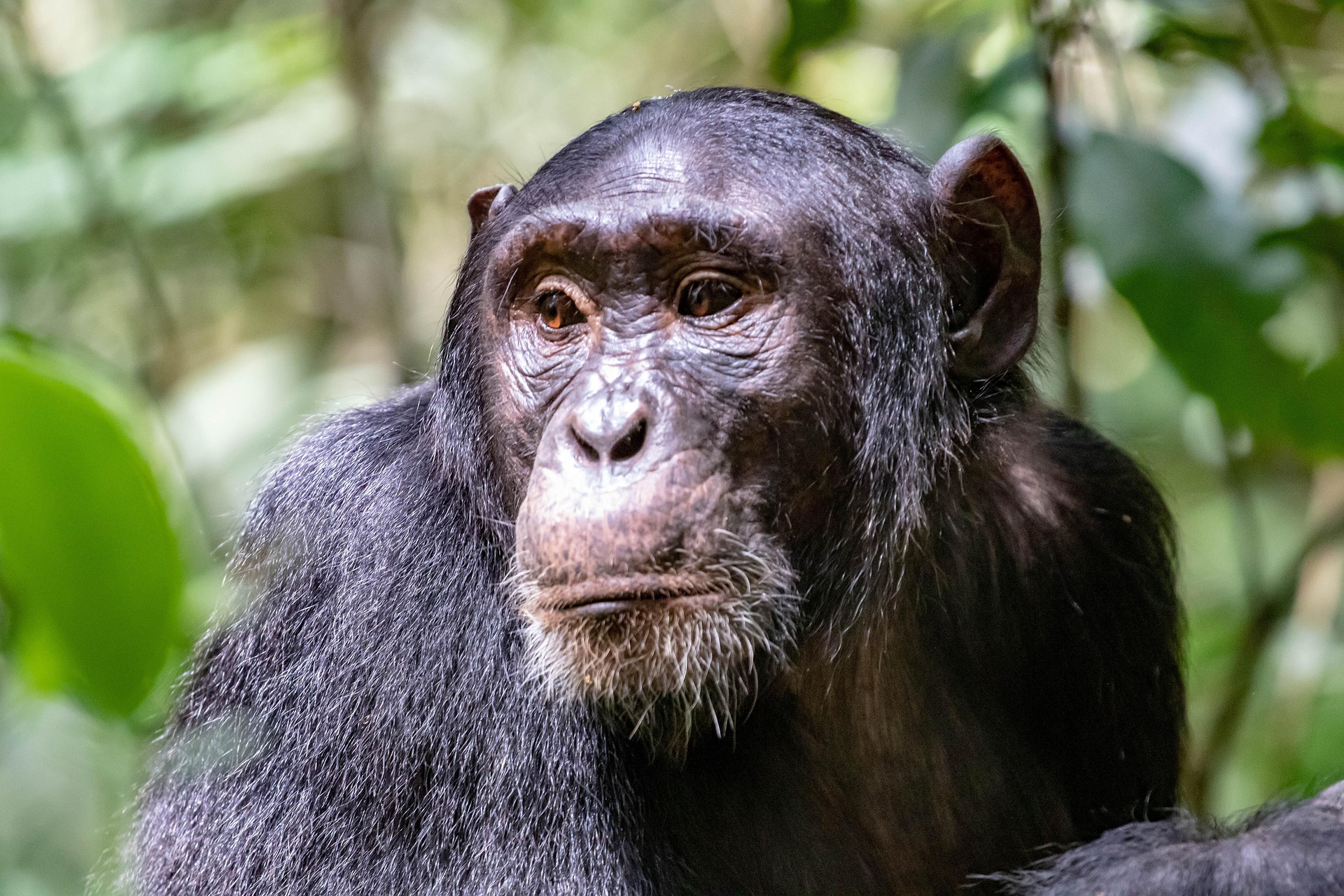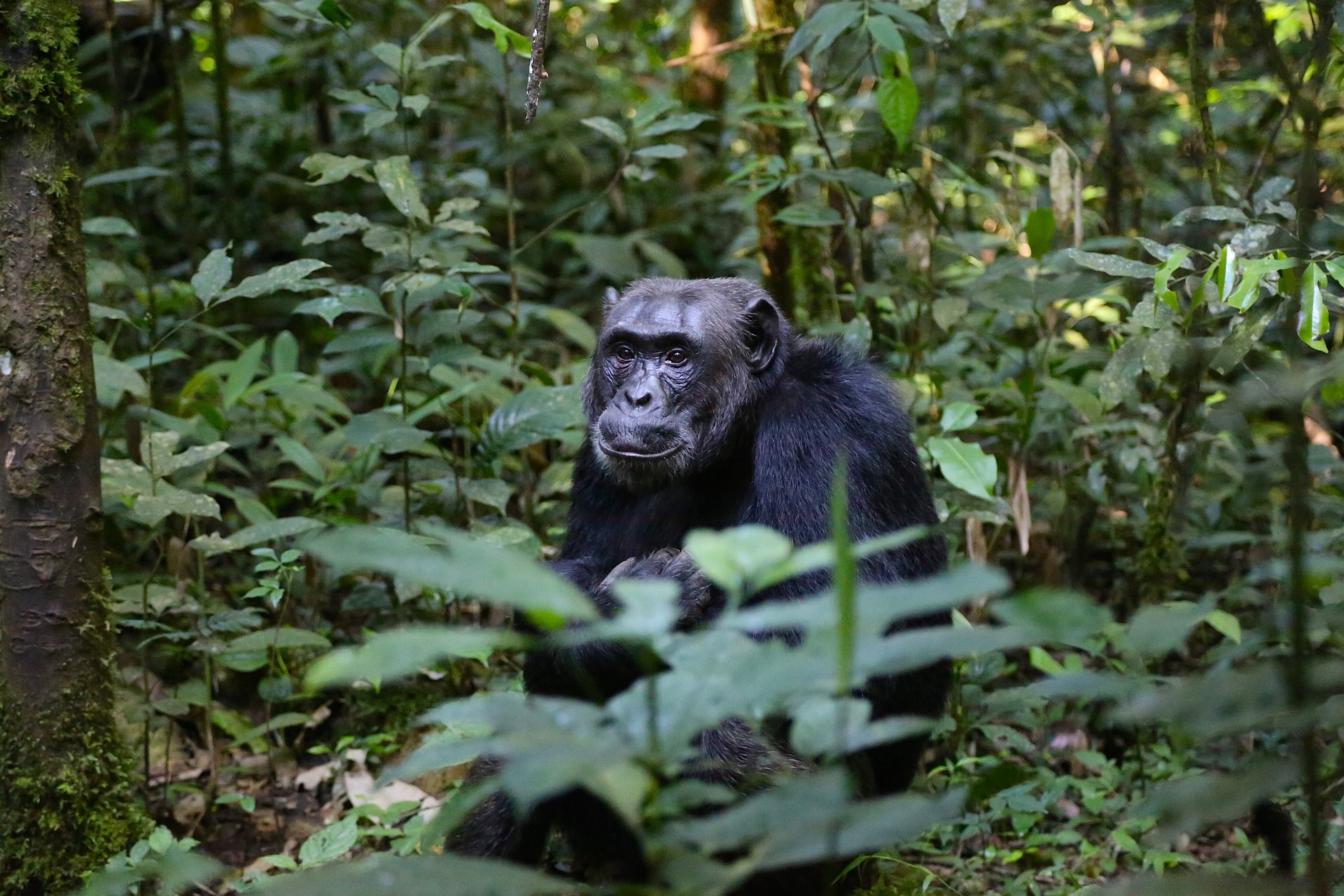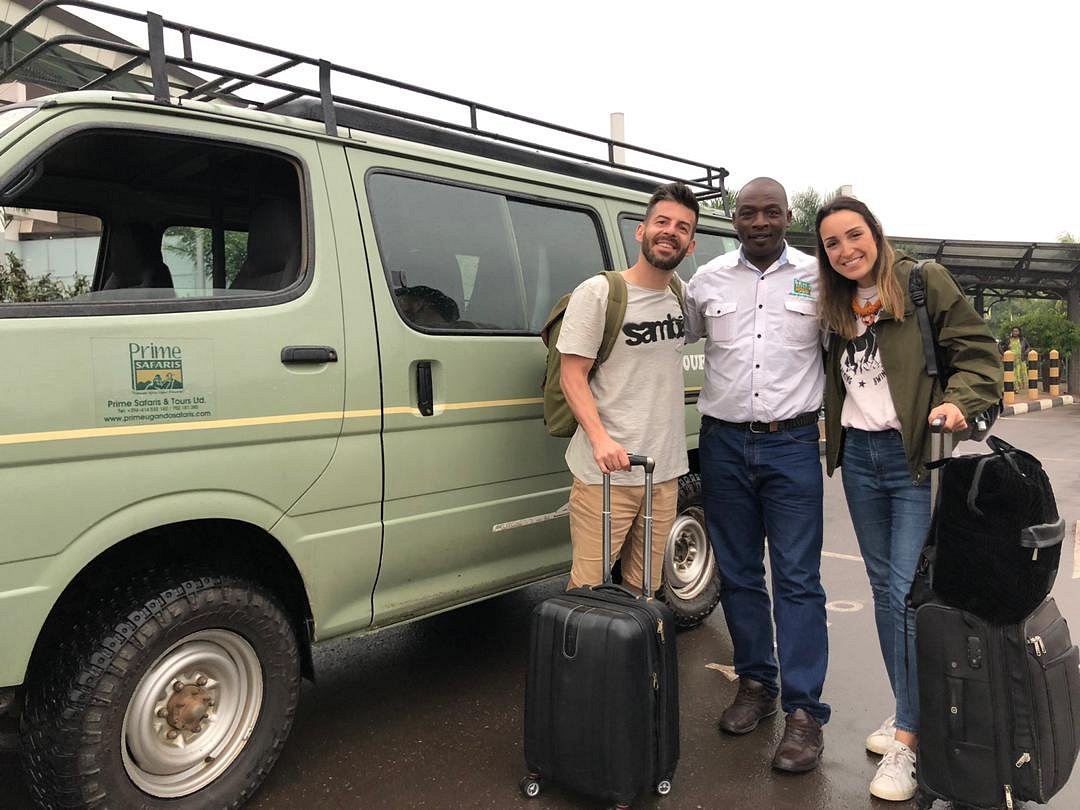Here is a detailed overview of this outstanding Rwanda National Park!
Stunning Nyungwe Forest National Park History

After Rwanda gained independence in 1962, the forest reserve was managed by the Ministry of Agriculture, but it suffered significant degradation due to fires, woodcutting, hunting, and agriculture.
By the 1980s, the forest had lost over 150 km², and key species like elephants and buffalo were severely depleted.
Conservation efforts resumed in the 1980s, with the Wildlife Conservation Society (WCS) conducting biodiversity surveys and the development of trail systems. \
However, the 1994 genocide and war devastated the country, and the park’s infrastructure and staff were severely impacted.
The park began to rebuild in 1995, but security and stability remained uncertain until the late 1990s. Unfortunately, the last elephant in Nyungwe was killed by poachers in 1999.
Despite these challenges, efforts continue to protect and restore Nyungwe Forest NP.
Park Management of Nyungwe Forest Rwanda
Building on their successful partnership in Akagera National Park, African Parks signed a 20-year management agreement with the Rwandan government in 2020 to oversee and manage Nyungwe’s conservation efforts.
Therefore, Nyungwe Forest National Park, managed by the Rwanda Development Board and African Parks, aims to conserve biodiversity, promote economic sustainability, and develop strong tourism offering revenue while addressing challenges like habitat fragmentation and poaching through strategies like habitat management, community engagement, and research.
The park generates $4.8 billion annually, driven by sustainable tourism and investment managed by African Parks, balancing economic growth with environmental conservation to achieve a financially self-sufficient asset that is ecologically healthy.
Unique Geology and Geography of Nyungwe, Rwanda
Nyungwe, Rwanda, located in southwestern Rwanda in East Africa, is a biodiversity hotspot and one of Africa’s largest and oldest rainforests (Nyungwe Forest), with the largest expanse of trees in the nation.
Spanning 1,019 square kilometers, the park boasts a unique geography and geology, with a tropical highland climate and temperatures ranging from 10°C to 20°C.
As part of the Albertine Rift, Nyungwe is situated in the middle watershed between the Congo and Nile rivers, making it a critical area for water catchment and conservation.
The park’s complex geology, dominated by granite, gneiss, and schist, has been shaped by tectonic activity, weathering, and erosion.
The park’s topography is varied, with rolling hills, steep slopes, and deep valleys. Mount Bigugu, the highest point, rises to 2,921 meters above sea level.
The terrain is characterized by numerous rivers, streams, and waterfalls, creating a diverse and complex ecosystem.
Nyungwe is home to the largest high-altitude montane forest in the middle of Eastern and Central Africa, supporting a wide range of plant and animal species taking advantage of the trees to form habitats.
The park’s unique features include:
- The Congo-Nile Divide
- The Albertine Rift
- Volcanic origin
- Karst topography
With its rich biodiversity, spectacular beauty, and unique geography, Nyungwe, Rwanda, is a vital conservation area and a popular travel destination for ecotourism.
Extraordinary Nyungwe Forest National Park Attractions to See on Rwanda Safaris
Visit Rwanda Nyungwe and get a glimpse of these fascinating attractions:
1) Chimpanzees
Our closest living relatives, chimps are a highlight of Nyungwe NP that can be tracked and observed in their natural habitat on a guided trek.
2) Other Primates
Nyungwe is home to 13 primate species, including Angolan colobus monkeys, black and white colobus monkeys, mona monkeys, golden monkeys, L’Hoest’s monkeys, and owl-faced monkeys that can be spotted swinging through the tree tops and canopies.
3) Wildlife Species
The park is home to various wildlife, including bushpigs, duikers, and serval cats, among others. You can catch a glimpse of a bushpig foraging for food in the underbrush while on wildlife viewing tours.
4) Bird Species
With over 300 bird species, Nyungwe is a birdwatcher’s paradise. You can spot a majestic Rwenzori turaco or a regal crowned crane while on birding tours in Nyungwe along birding trails, tree tops, etc.
5) Nyungwe Forest Canopies
Explore the park’s lush canopies on a guided or thrilling canopy walk 60 meters above the dense forest floor and get to see birds and monkeys.
6) Waterfalls
Nyungwe is home to several stunning waterfalls, including the Karambo waterfall on the east side of the park and the Kamiranzovu Waterfall. Hike and swim in its natural pool for a refreshing feel.
7) Lakes and Rivers
The park is crisscrossed by Lake Kivu and several rivers, including the Nyungwe River, Kagitumba River, and Gisakura River, where you can take a scenic boat ride along the Nyungwe River and see some aquatic birds and animals.
8) Tea And Coffee Plantations
Visit coffee and tea plantations at Gisakura, Gisovu, and Uwinka; learn about tea production, and enjoy a cup of freshly brewed tea at a local plantation.
9) Cyinzobe
Explore the Cyinzobe area, known for its stunning views and diverse wildlife, when on a guided hike and trek to the top of Cyinzobe for a beautiful view of Nyungwe Forest in Rwanda.
10) Bigugu Mountain
Hike and trek to the top of Bigugu Mountain, the highest point in the park, and enjoy breathtaking views of the surrounding landscape from the summit.
11) Hiking Trails
Nyungwe has over 130 kilometers of hiking trails, ranging from easy to challenging. Example: Hike the popular Igishigishigi Trail or the more challenging Bigugu Trail and discover the wonders packed in the Nyungwe forest.
12) Cyamudongo Forest
Explore the Cyamudongo forest and isolated patch of Nyungwe Forest, a unique and diverse ecosystem, and spot rare bird types and primates while on a guided walk or trek.
Please Note That Besides the Above Attractions, there are other things to see when on Rwanda safari tours near Nyungwe Forest, like the King’s Palace Museum, Cyamudongo community center, Ethnographic Museum, markets in Butare Town, etc.
Book your next safari holiday to Rwanda and experience Nyungwe National Park.
Best Nyungwe National Park Activities Done on Rwanda Safari Tours
When you visit Rwanda, Nyungwe Park offers a wide range of activities for visitors to enjoy and explore and some of the top things to do include:
- Chimpanzee Trekking
Track and observe chimpanzees in their natural habitat, getting up close and personal with these intelligent primates when on a Rwanda chimpanzee trek. This is similar to Rwanda gorilla trekking activities.
- Canopy Walk

Take a guided walk along the park’s canopy walkway, suspended 60 meters above the forest floor, offering breathtaking views of the dense forest and its inhabitants.
- Bird Watching
Explore the park’s diverse birdlife, with over 300 birds of Rwanda, some of which are Albertine Rift endemics, including the majestic Rwenzori turaco and the regal crowned crane.
- Guided Nature Walks
Discover the park’s diverse ecosystems, including the tropical rainforest, bamboo forests, and grasslands, with knowledgeable guides.
- Monkey Trekking
Track and observe various monkey species, including the Angolan colobus monkeys, red-tailed colobus monkeys, black and white colobus monkeys, mona monkey types, golden monkeys, L’Hoest’s monkeys, and the owl-faced monkey.
Nyungwe Forest in Rwanda, Africa, is home to a diverse range of fauna, including primates, birds, mammals, reptiles, and amphibians, which can be seen when partaking in different activities like guided walks and treks to spot these animals up close.
Other Activities Include:
| Colobus monkey trekking | Tours to Tea plantations |
| Butare cultural tour | Kamembe town tour |
| Cycling and mountain biking | Hiking trails, with 13 trails covering over 130 kilometers of the rainforest floor |
| Coffee plantation visits | Night walks |
| Chimpanzee habituation experiences | Cultural experiences |
These activities offer a range of experiences, from adventure and wildlife viewing to cultural exploration and relaxation, making Nyungwe a must-visit travel destination on any Rwanda safari tour.
Top Rated Safari Lodges and Hotels in Nyungwe National Park
Nyungwe offers various accommodations to suit different budgets and preferences, ranging from luxury lodges to budget lodges. Here are some top-rated options:
1) One & Only Nyungwe House
For a luxurious stay, consider this lodge, which costs around $1,000 per night. This luxury lodge offers top-notch amenities, including an infinity pool, spa, gourmet dining, and luxurious rooms and suites. Guests can enjoy activities like canopy walks, chimpanzee tracking, and bird watching.
2) Mantis Kivu Marina Bay Hotel
Another luxury option is this top-rated hotel, priced at around $500 per night. This hotel boasts stunning views of Lake Kivu, luxurious rooms, a restaurant, and a bar. Visitors can enjoy boat cruises, fishing, and bird watching during their stay.
3) Nyungwe Top View Hill Hotel
For a more affordable option, the hotel offers mid-range accommodations at around $150 per night. This hotel features private rooms, panoramic views of the park, a restaurant, and a bar. Guests can participate in activities like chimpanzees trekking in Rwanda, bird watching, and nature walks.
4) Nyungwe Forest Lodge
This is another mid-range option, costing around $200 per night. This lodge provides luxury tourist facilities, including a gym, swimming pool, and comfortable rooms. Visitors can enjoy a guided jungle trek, a canopy walkway, bird watching, and nature tours during their stay.
5) Gisakura Guest House
Budget-conscious travelers can consider this lodging option, which costs around $30 per night. This guesthouse offers basic rooms, a small restaurant, and proximity to the park headquarters. Guests can participate in activities like chimpanzee tracking, canopy walks, and nature walks.
Additional options include:
- The Emeraude Kivu Lodge, a mid-range lodge with comfortable rooms and a beautiful view of Lake Kivu.
- The Uwinka Visitor Center offers budget-friendly camping facilities and simple rooms, i.e. Uwinka campsites and Uwinka guesthouses.
- The Nyungwe Eco-Lodge is an eco-lodge with comfortable rooms and stunning views of the park.
Booking these in advance during the peak season is highly recommended!
How To Get to Nyungwe National Park?
To get to Nyungwe NP, follow these steps:
1) By Air
- Fly into Kigali International Airport (KGL), the capital city of Rwanda.
- From Kigali, take a domestic flight to Kamembe Airport (KME), which is the closest airport to Nyungwe Forest Rwanda. On arrival, register at the park headquarters at the Uwinka Visitors Center for more instructions and a briefing.
2) By Road

- From Kigali, take a bus or drive to Nyungwe NP via the main road to Cyangugu.
- The journey takes around 6-7 hours, depending on traffic and road conditions.
- Alternatively, you can take a taxi or hire a private vehicle for the journey.
3) From Nearby Towns
- From Cyangugu, take a taxi or bus to Nyungwe (around 1-2 hours).
- From Gisenyi, take a taxi or bus to Nyungwe Forest, in Rwanda (around 4-5 hours).
Important Reminders:
- The road to Nyungwe can be rough, especially during the rainy season.
- It’s recommended to hire a 4×4 vehicle or take a bus/taxi with experienced drivers.
- Be prepared for scenic views and potential delays due to road conditions or weather.
It’s important to consult a reputable Rwanda tour operator for the best safari package that caters to transport from Kigali or other nearby towns.
Nyungwe Forest National Park Fees and Costs
Nyungwe fees vary depending on the activity, residency, and duration of stay, and here’s a breakdown:
| Park Entrance Fees:
· Rwandan/EAC Citizen: $10 (10,000 RWF) for 1 day/night, $15 (15,000 RWF) for 2 nights, and $20 (20,000 RWF) for 3 nights
· Foreign Resident in Rwanda/EAC: $60 for 1 day/night, $90 for 2 nights, and $120 for 3 nights
· International Visitor: $100 for 1 day/night, $150 for 2 nights, and $200 for 3 nights
| Tourist Activity Fees:
· Chimpanzee Trekking: $90 (foreign non-residents), $60 (foreign residents), 5,000 RWF (Rwandans)
· Other Primates Tracking: $60 (foreign non-residents), $40 (foreign residents), 5,000 RWF (Rwandans)
· Guided Nature Walks: $40 (foreign non-residents), $30 (foreign residents), 3,000 RWF (Rwandans)
· Bird Watching: $50 (foreign non-residents), $40 (foreign residents), 5,000 RWF (Rwandans)
· Canopy Walk: $60 (foreign non-residents), $50 (foreign residents), 5,000 RWF (Rwandans)
|
Additional Rates:
- Camping goes for $15 per adult per night, $7.50 per child per night
- Tent Hire is about $20 per 4-man tent
- Commercial Filming/Photography goes for $300 per day
- Fines for Breaking Park Rules are $150 per incident
Rules And Regulations for Visiting Nyungwe Park
Some of these are:
- All visitors must be accompanied by a licensed guide.
- Visitors must stay on designated trails and follow park rules.
- No smoking, littering, or making loud noises.
- Respect wildlife and their habitats; no touching, feeding, or provoking animals.
- No removal of plants, animals, or other materials from the park.
- Maximum group size for chimpanzee trekking and canopy walk is 8 people.
- Visitors must be at least 15 years old for chimpanzee trekking in Rwanda and 6 years old for a canopy walk.
- Trekking starts at 5:00 am; visitors must arrive at the park headquarters by 4:30 am.
- Wear long sleeves, long pants, and closed shoes for chimpanzee trekking.
- No eating or drinking near the chimpanzees.
- Keep a safe distance (at least 7 meters) from the chimpanzees.
- Wear comfortable shoes and secure clothing for the canopy walk.
- No loose items that could fall and harm others during the canopy walk.
- Follow guide instructions and stay on designated walkways during the canopy walk.
- Park opening hours: 6:00 am – 6:00 pm.
- Entrance fees must be paid in advance.
- No drones or aerial photography without prior permission.
- No camping or overnight stays without prior permission.
- Visitors must be physically fit and able to walk long distances.
- Wear protective clothing and apply insect repellent.
- Bring sufficient water and snacks.
- In case of emergency, follow guide instructions and park protocols.
Ensure that you follow park rules and guidelines for a safe and memorable experience for both human beings and animals.
Best Time to Visit Nyungwe Forest National Park in Rwanda Africa
The best time to visit Nyungwe Park Rwanda is during the dry seasons, from June to September and mid-December to mid-February, which offers ideal conditions for hiking, canopy walks, trekking, and chimpanzee tracking.
However, bird enthusiasts may prefer the wet seasons from March to May and October to mid-December, when the rainy seasons bring forth an abundance of food.
Regardless of the time of year, be prepared for potential rainfall and pack proper gear and warm clothing.
Threats Posed on Nyungwe Forest National Park Africa
Nyungwe faces numerous threats, including poaching, illegal extraction of minerals and resources, deforestation, habitat fragmentation, climate change, human-wildlife conflict, invasive species, over-tourism, mining, and infrastructure development.
The park’s biodiversity is also under pressure from local communities’ unsustainable harvesting of resources, such as bamboo and firewood, driven by population growth and poverty.
Additionally, insufficient funding, limited community engagement, and lack of awareness hinder effective conservation efforts, putting the park’s integrity and endemic species of the Albertine Rift at risk, hence the need for conservation efforts.
Nyungwe Park Conservation Efforts
Nyungwe Park Rwanda, implements various efforts to protect wildlife in Africa and conserve Nyungwe’s unique biodiversity and ecosystems.
These initiatives include reforestation of degraded areas, habitat protection of over 1,019 km² of montane forest, research and monitoring, community engagement, sustainable forest management, anti-poaching efforts, ecotourism, collaboration with local authorities, restoration of degraded habitats, establishment of wildlife corridors, and international cooperation.
Through these efforts, the park aims to safeguard habitat for endangered species, promote coexistence with wildlife, and support conservation for future generations.
What To Wear for African Safari Tours in Nyungwe Rwanda?
You can wear some of these warm clothing when on safaris in Nyungwe Forest in Rwanda, i.e.,.
| Neutral-colored shirts, pants, and shorts (khaki, olive, beige, or brown) | Comfortable hiking boots or sturdy shoes | Long-sleeved shirts and pants for protection from insects and thorns |
| Lightweight, breathable, and moisture-wicking fabrics | Warm layers (fleece or sweater) for cooler mornings and evenings | Waterproof or water-resistant jacket and pants |
| Wide-brimmed hat | Sunglasses | Socks and underwear |
| Swimwear (if applicable) | Quick-drying, neutral-colored clothes | Gardening Gloves |
| Gaiters | Rain jacket | Scarf or bandana |
Additional Notes:
- Avoid bright colors, especially white.
- Wear comfortable, sturdy shoes or boots with good traction.
- Consider wearing clothing with built-in insect repellent.
- Dress in layers to adjust to changing temperatures.
- Wear clothing that allows for ease of movement and flexibility
What to Pack for Safari in Nyungwe Rwanda
For a smooth Rwanda safari tour in Nyungwe, please pack some of these personal essentials, i.e.
| Insect repellent (DEET or picaridin) | Sunscreen and lip balm |
| First-aid kit | Personal medications |
| Activity gear | Malaria prophylaxis (if necessary) |
| Water purification tablets/filter (if not using bottled water) | Camera with telephoto lens |
| Binoculars | Smartphone with portable charger |
| Power bank for extra battery life | Waterproof phone case |
| Reusable drinking water bottle | Snacks (energy bars, nuts, dried fruits) |
| Guidebook and map | Flashlight or headlamp |
| Portable stove or camping equipment (if camping) | Backpack or daypack for carrying essentials |
| Travel documents (passport, visa, etc.) | Local currency (Rwandan francs) |
| Hand sanitizer | Toiletries (toothbrush, toothpaste, hairbrush, etc.) |
| Valid travel documents (passport, visa, etc.) | Vaccination cards (yellow fever, COVID-19, etc.) |
Please endeavor to check with your tour operator or park authorities for specific requirements and recommendations for an enjoyable safari in Nyungwe!
Nyungwe Rwanda FAQs (Frequently Asked Questions)
What Is Unique About Nyungwe National Park?
Nyungwe stands out for having one of Africa’s largest and oldest rainforests, with the largest expanse of trees in the nation covering an impressive 1,019 square kilometers and home to over 330 bird types, 75 mammal species, and 1,000 plant species.
How Much Does It Cost to Visit Nyungwe National Park?
Nyungwe Forest National Park entrance fees range from $10 to $200 per person, depending on residency status and duration of stay, and for tourist activities, it is best to consult a reputable tour operator for the right costings.
How Long Is the Canopy Walk in Nyungwe?
The canopy walk in Nyungwe is approximately 200 meters long on suspended bridges.
What Are the Threats to Nyungwe National Park?
Threats include habitat loss and fragmentation, climate change, poaching, and human-wildlife conflict, among others that the park management is working hard to combat.
What Is the Most Visited National Park in Rwanda?
Volcanoes National Park is often considered the most visited due to its mountain gorillas‘ populations that make gorilla trekking safaris possible in Rwanda.
How Much Is Chimpanzee Trekking in Nyungwe?
Chimpanzee trekking permits in Nyungwe Forest NP range from $25 to $150 per person, depending on residency status, with foreign non-residents paying $150, foreign residents paying $75, and East African citizens paying $25.
However, prices may vary depending on the time of year and other factors, so it’s best to check with the RDB or a reputable tour operator for the latest information.
Plan your dream Rwanda safari getaway with our expert team! We offer customized packages to visit Rwanda’s stunning Nyungwe Forest National Park at an affordable price. Book now and make your safari holiday a reality!

Over 50 excellent reviews on Safaribookings.
 >
> 